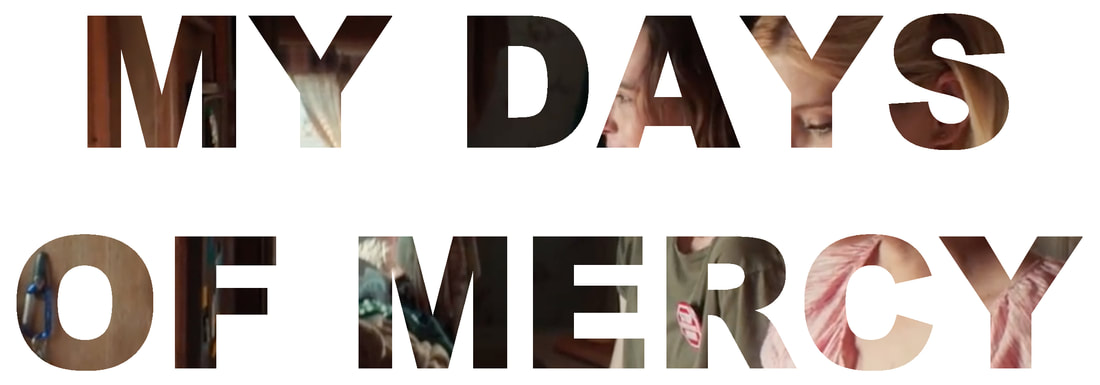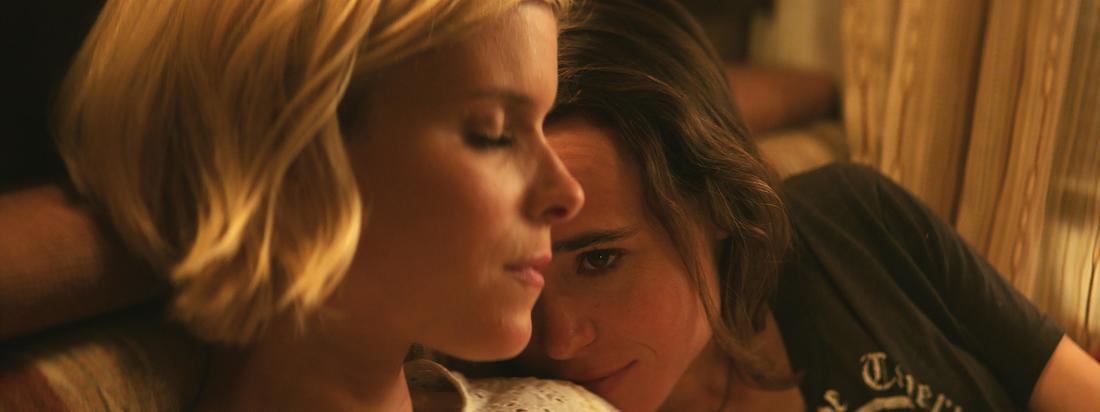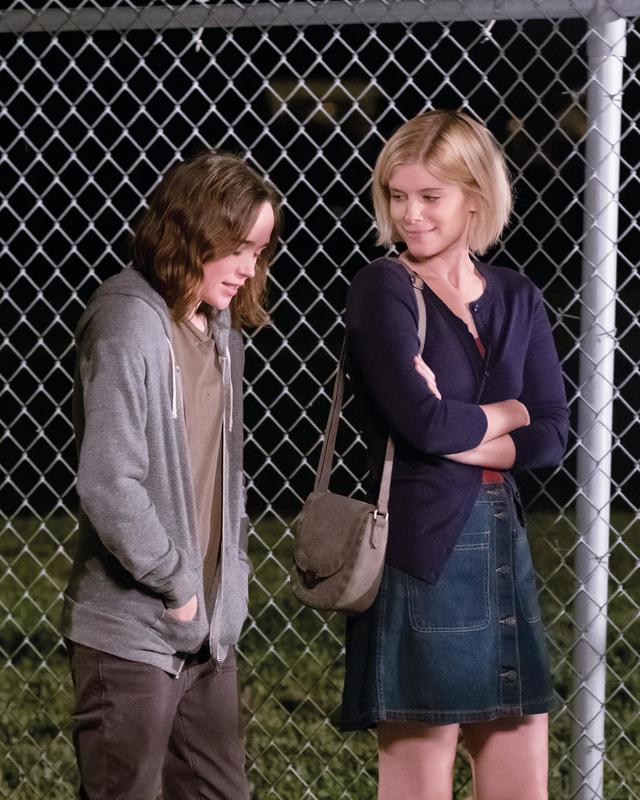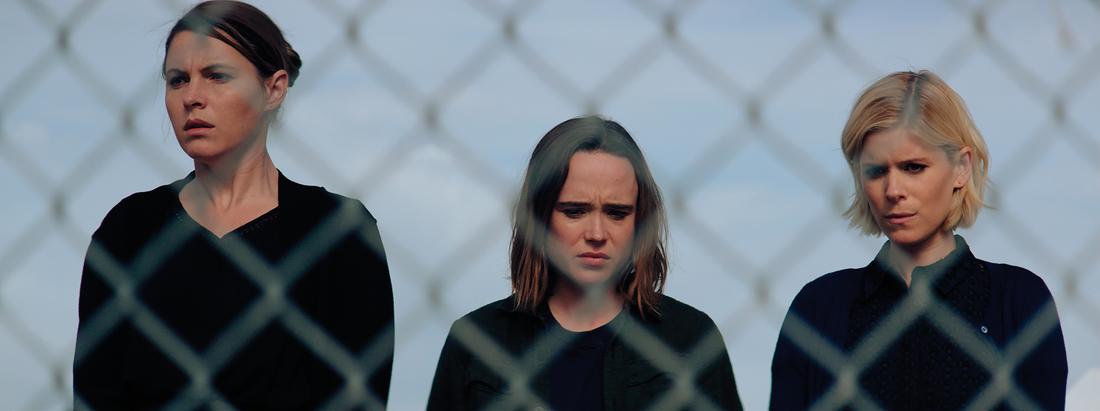|
★★★☆☆
21 December 2017
A movie review of MY DAYS OF MERCY. |
“I don’t think that we’re supposed to fraternise,” Lucy (Ellen Page)
Memorably actors Ellen Page and Kate Mara teamed up previously for Funny or Die’s sketch ‘Tiny Detectives’. Here, they switch from comedy to drama. The death penalty is debated via a love story. To tackle the topic of capital punishment through romance is rare (e.g. MONSTER’S BALL). Mixing genres can lead to freshness. What dampens the impact of MY DAYS OF MERCY is the film veering into romantic formula. There are little surprises to the burgeoning bond between Lucy (Ellen Page) and Mercy (Kate Mara). The death row element is not an intellectual or philosophical analysis, but focuses on the emotional impact on the accused’s family. That aspect to the film is gripping and deeply moving.
This reviewer is against the death penalty for several reasons. It is barbaric. The punishment cannot be underdone if there has been a miscarriage of justice. Those interested in the topic should check out director Werner Herzog’s documentary INTO THE ABYSS and accompanying mini-series, ON DEATH ROW. The projects articulate cogently why executions are a very bad idea. Many of Hollywood’s films seem to be against capital punishment, e.g. THE GREEN MILE, DEAD MAN WALKING and CAPOTE. MY DAYS OF MERCY does not explicitly come down on a particular side. That the audience spends time with the humanistic community protesting for abolition, and not the other group, suggests a view.
Memorably actors Ellen Page and Kate Mara teamed up previously for Funny or Die’s sketch ‘Tiny Detectives’. Here, they switch from comedy to drama. The death penalty is debated via a love story. To tackle the topic of capital punishment through romance is rare (e.g. MONSTER’S BALL). Mixing genres can lead to freshness. What dampens the impact of MY DAYS OF MERCY is the film veering into romantic formula. There are little surprises to the burgeoning bond between Lucy (Ellen Page) and Mercy (Kate Mara). The death row element is not an intellectual or philosophical analysis, but focuses on the emotional impact on the accused’s family. That aspect to the film is gripping and deeply moving.
This reviewer is against the death penalty for several reasons. It is barbaric. The punishment cannot be underdone if there has been a miscarriage of justice. Those interested in the topic should check out director Werner Herzog’s documentary INTO THE ABYSS and accompanying mini-series, ON DEATH ROW. The projects articulate cogently why executions are a very bad idea. Many of Hollywood’s films seem to be against capital punishment, e.g. THE GREEN MILE, DEAD MAN WALKING and CAPOTE. MY DAYS OF MERCY does not explicitly come down on a particular side. That the audience spends time with the humanistic community protesting for abolition, and not the other group, suggests a view.
The two leads represent the opposing arguments. They meet for the first time at a Kentucky protest, and connect. Their divergence continues into their socio-economic backgrounds. Mercy’s family are conservative, religious, wealthy. Lucy’s family are none of those. The lives of the latter have been on hold for eight years. Three siblings sticking together, trying to get their father, Simon (Elias Koteas), exonerated for the murder of their mother.
Lucy has little employment prospects and seems to be already ambivalent in her early 20s. Older sister Martha (Amy Seimetz) was at university when their mother was killed, and one perceives her education was interrupted. Martha is the breadwinner, matriarch and chief flag-waver for Simon. One can only imagine the toll it has taken. Younger brother Benjamin (Charlie Shotwell) was only a baby at the time. They have suffered. MY DAYS OF MERCY gets this across convincingly. This family is a bit broken, but their strength of character shows it is recoverable.
Weldon (Brian Geraghty) is a pro bono lawyer, who is also seeing Martha. (Lucy makes a pro-boning joke.) Weldon reminds how money is required for justice. By the way, what a terribly twee title for a film. Having a double meaning to “mercy” is unnecessarily annoying.
We never meet the victim in flashback. We do not witness the crime. We do not find out until the end whether Simon is guilty. It is a wise narrative choice. Not knowing whether or not the accused is to blame makes the film about the argument.
Using these Google Adsense links help us keep Filmaluation free for all film and arts lovers.





